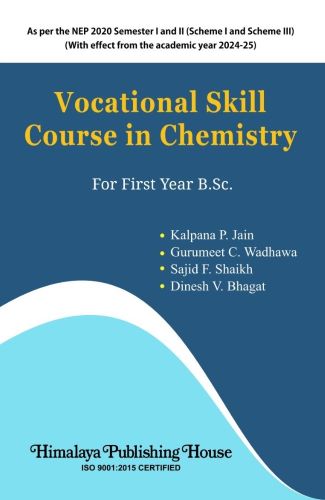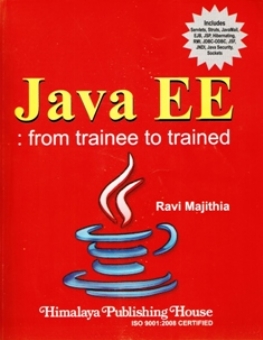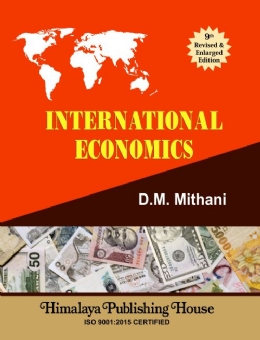As we all know, the National Education Policy (NEP) 2020 has been implemented in all higher education institutions starting from June 2024. It gives immense pleasure to authors to write a book on vocational skills courses in chemistry for F.Y.B.Sc. class, as per the syllabus framed by the University of Mumbai, with perspectives from NEP 2020. The main goal of the authors is to provide knowledge of chemistry to learners to help them gain job-oriented vocational skills. The information about different glasswares and apparatus used in chemistry laboratory has been illustrated with figures and the calibration methods for some of apparatus are discussed with detailed procedures.
Personal safety while working in chemical laboratories, including knowledge of chemical handling and the harmfulness of chemicals, is also discussed at a preliminary level. The sampling and analysis skills required for the analysis of food samples are also explained with examples.
Contents –
Sem I: Calibration of Glassware and Instruments
Unit I: Theory Component
1.1 Tools of Analytical Chemistry
1.1.1 Introduction
1.1.2 Common Laboratory Glassware and Instruments Used in Laboratory
1.1.3 SOPs for Instruments Used in Practical Course
1.1.4 Importance of Calibration with Reference to Accuracy, Precision and Minimisation of Errors
1.2 Introduction to Analytical Chemistry and Calibration of Laboratory Instruments
1.2.1 Introduction
1.2.2 Calibration of Laboratory Glassware: Burettes, Pipettes, Volumetric Flask, Thermometer, etc.
1.2.3 Calibration of Laboratory Instruments: pH-meter, Conductometer, Potentiometer and Colorimeter
1.3.1 Introduction to Pictogram of Chemical Used (Acids, Bases, Solvents and Salts)
1.3.2 Material Safety Data Sheets with Reference to Hazardous Chemicals Like K2Cr2O7, Benzene, Cadmium Nitrate, β-naphthol, CCl4 and Mercury
1.3 Chemicals and Laboratory Safety
1.3.3 Precautions in Handling of Hazardous Substances Like Concentrated. Acids, Ammonia, Organic Solvents Like Ether and Alcohol
Unit II: Practical Component
2.1 Calibration of Laboratory Glasswares
2.1.1 Calibration of Burette
2.1.2 Calibration of Pipette
2.1.3 Calibration of Standard Measuring Flask
2.1.4 Calibration of Thermometer
2.2 Calibration of Laboratory Instruments
2.2.1 Calibration of pH Meter
2.2.2 Calibration of Conductometer
2.2.3 Calibration of Colorimeter
2.2.4 Calibration of Potentiometer
Sem II: Commercial Analysis of Food Samples
Unit I: Theory Component
1.1 Importance of Food Analysis and Nutrients
1.1 Importance of Food Analysis
1.1.1 Food Analysis – Need and Importance
1.1.2 Explaining Nutrition
1.1.3 Functions of Food
1.1.4 The Relationship between Nutrition and Health
1.1.5 The Inter-relationship between Food, Nutrition and Health
1.2 Principles of Food Safety and Quality Assurance
1.2.1 Characterisation of Raw Materials
1.2.2 Steps in Food Analysis
1.2.3 Food Analysis and Quality Control
1.2.4 Concept of Food Additive
1.2.5 Preservatives
1.2.6 The pH Value of a Food
1.2.7 Chemical Preservatives
1.2.8 Foodborne Illness Statistics
1.3 Importance of Food Analysis with Reference to Important Case Study (BVO)?
1.3.2 Nickel
1.3.3 Oxytocin in Milk
1.3.1 What is Brominated Vegetable Oil
1.3.4 Applications of Chemical and Instrumental Methods in Food Analysis
Unit II: Practical Component







